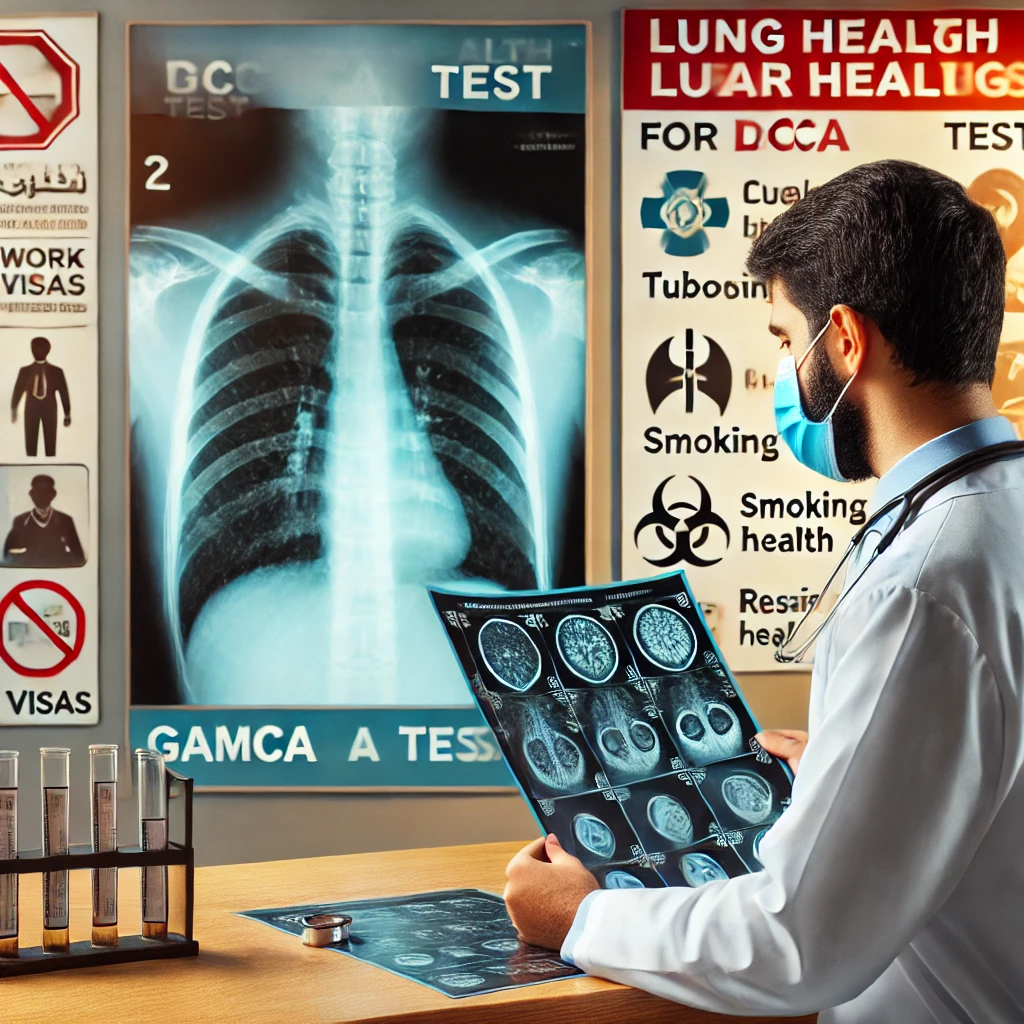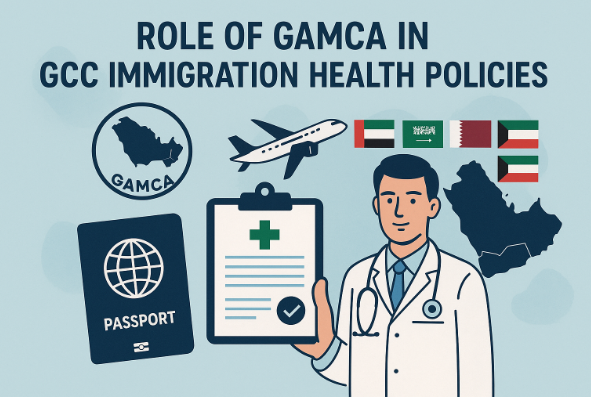The Significance of Lung Health in the GAMCA Medical Test
If you want to work in any of the Gulf Cooperation Council (GCC) countries, you must first pass the GAMCA medical test. Your lung health is one of the most important health checks performed during this test. Many candidates are astonished to learn that even modest lung health conditions can affect their ability to receive a visa. Understanding why lung health is so important will help you prepare for the exam and ensure a smooth immigration procedure.
Lung Health and Communicable Diseases
One of the key reasons for emphasizing lung health in the GAMCA medical test is the potential spread of communicable diseases, particularly those affecting the respiratory system. Diseases like tuberculosis (TB) are highly contagious and can spread through the air, creating a serious public health danger in densely populated places.
- Tuberculosis (TB): One of the key diseases screened for during the GAMCA test is tuberculosis, a serious lung infection that can easily spread. If you’re found to have active TB or scars from previous TB, it could lead to an automatic visa rejection. This is due to the highly contagious nature of TB and the risks it poses to the local population.
- Other Respiratory Infections: Conditions such as pneumonia or chronic bronchitis are also flagged during the test, as they could indicate a weakened respiratory system, making the individual more vulnerable to severe infections.
The Importance of Clear Chest X-rays
The chest X-ray is an important part of the lung health assessment since it can detect any abnormalities in the lungs. For many applicants, the chest X-ray can be the deciding factor in their medical evaluation.
- Calcifications and Scarring: If your chest X-ray shows calcified nodules or scars from previous lung infections, you could face difficulties in passing the test. Although these marks may not indicate an active infection, they could suggest a history of lung disease, prompting further investigation.
- Fluid in the Lungs: Any indication of fluid buildup in the lungs, which could result from infections or chronic conditions, may also be flagged as a concern during the GAMCA medical examination.
Smoking and Lung Health
Smoking might hurt your GAMCA medical test score. Chronic smoking impairs lung function, causes inflammation, and can sometimes result in the development of chronic obstructive pulmonary disease (COPD). If your lungs exhibit evidence of smoking-related damage, your test findings may be complicated.
- Long-term Impact: Even if you are not currently experiencing respiratory symptoms, long-term smoking can leave lasting marks on your lungs that may show up in the X-ray results, impacting your chances of passing the medical test.
Preparing for the Test: How to Ensure Healthy Lungs
If you’re preparing for your GAMCA medical test, especially if you’ve had any lung-related health concerns in the past, here are a few steps to ensure your lungs are in the best possible condition:
- Quit Smoking: If you’re a smoker, consider quitting well in advance of your medical test. This will not only improve your lung function but also reduce any visible damage in the X-ray results.
- Get a Pre-Test Checkup: If you’ve had any previous lung issues, it’s a good idea to get a medical checkup before the GAMCA test. This will give you an idea of any potential concerns and allow you to address them beforehand.
- Boost Your Immune System: Strengthen your respiratory health by eating a nutrient-rich diet, staying hydrated, and maintaining a healthy exercise routine to keep your lungs functioning optimally.
- Get Vaccinated: If you’re eligible, ensure you are vaccinated against diseases such as influenza and pneumonia, which can protect your lungs and prevent potential health risks.
Consequences of Poor Lung Health
If your lung health is compromised, it could lead to several outcomes during the GAMCA medical test process, such as:
- Visa Rejection: If your lungs show signs of infection or scarring, your visa application could be denied, affecting your ability to work in GCC countries.
- Re-Testing and Delays: In some cases, if there are questions about your lung health, you may be required to undergo further tests, delaying your visa process and possibly causing complications with your employment plans.
Conclusion
Maintaining good lung health is vital for passing the GAMCA medical test and obtaining a work visa in the GCC countries. Lung-related health issues, such as tuberculosis, scarring from past infections, and smoking damage, can all have a detrimental impact on your success. Preparing ahead of time by taking care of your lungs, stopping smoking, and seeking medical advice if you have a history of lung problems will help make the visa application process go more smoothly and successfully.




